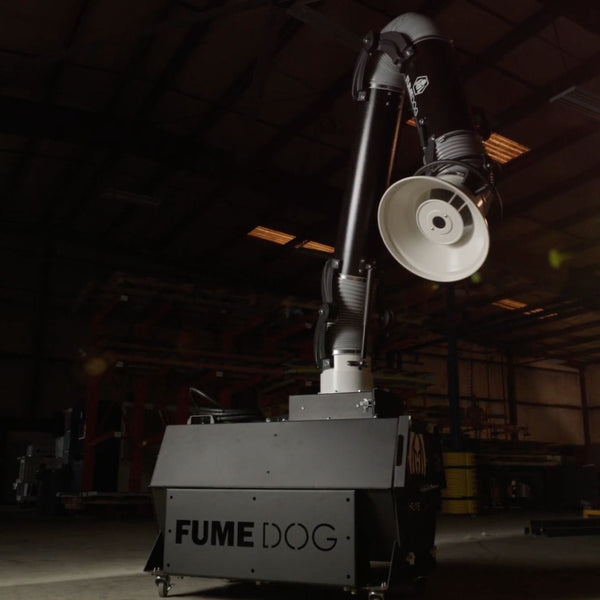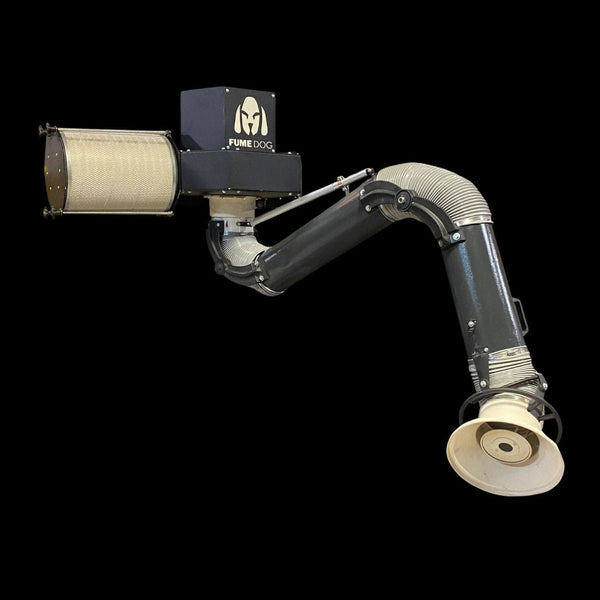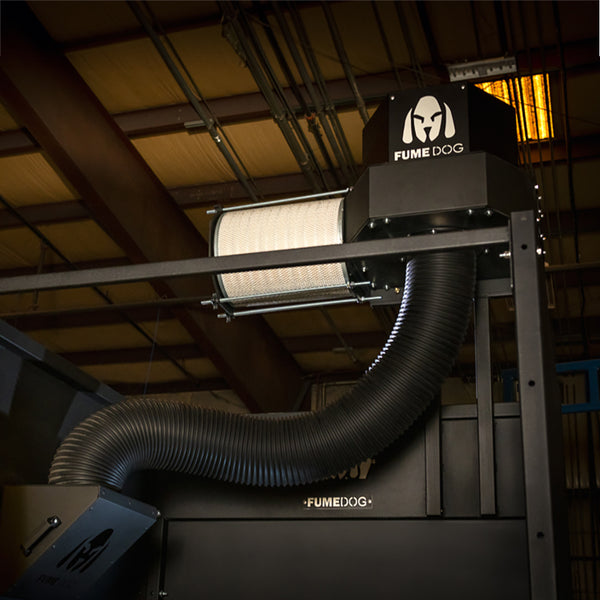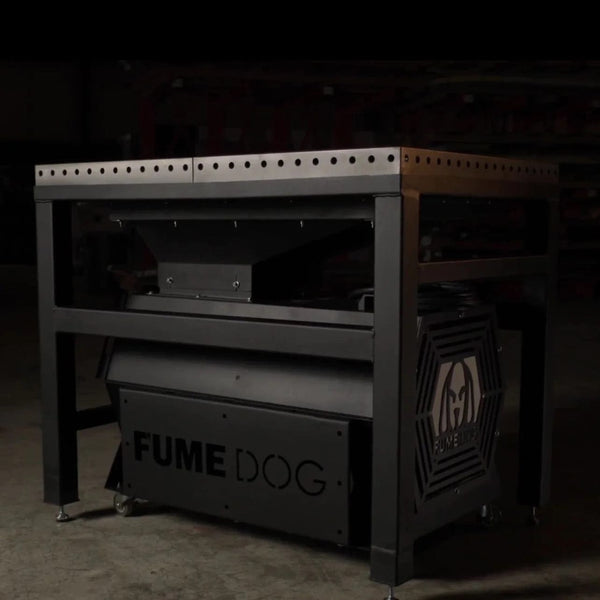
Metalworkers face serious health risks every time they clock into work. These hazards are something metal shops can’t avoid; they’re a natural part of cutting, folding, and welding metal pieces. But while a shop cannot completely eliminate these threats, it can take the steps critical to mitigating the danger and significantly improving staff member safety.
One of the most important steps a shop can take is to utilize fume extractor systems, filtration systems that vacuum out harmful gasses and particulate matter. Using these extractors is one thing, but long-term maintenance and ensuring they provide the necessary safety is another. Be aware of how to take care of your fume extractors and have a basic maintenance guide for fume extractor systems.
Ready to Maximize Your Fume Extraction System's Performance?
Don't let improper maintenance put your workers at risk or compromise your system performance. Whether you're managing mobile welding fume extractors or need guidance on maintenance procedures for different systems, Fume Dog is here to help you achieve optimal performance and ensure compliance with local regulations.
Get expert support for your extraction unit today:
-
Shop Premium Fume Extraction Systems - Browse our complete collection of mobile welding fume extractors designed to create a healthy work environment
-
Design Your Custom Welding Lab - Let our experts help you create the perfect setup for capturing airborne contaminants and welding fume
-
Get Your Questions Answered - Find detailed guidance on filter maintenance, dust collector care, and establishing a regular maintenance schedule
-
Contact Our Experts Directly - Speak with our team about maintenance tasks, routine checks, and preventing overflow issues
Call us now at 1-800-980-3481 for immediate assistance with filter checks, regular inspections, or any questions about maintenance of the mobile fume extraction unit. Our specialists are ready to help you develop proper maintenance procedures that protect your investment and keep your dust bin, extraction systems, and entire operation running smoothly.
The Importance of Fume Extractors
To begin, a shop needs to understand the necessity of a fume extractor; it’s often the most critical piece of equipment preventing work-related injury and sickness. When staff members work with metals, such as cutting and welding pieces, that act can create chemical fumes or kick up small particulate matter. If a shop does not attempt to vacuum these substances, the gasses and particles will spread throughout the shop, but not before the employee working directly in front of the matter inhales something toxic.
Allowing these substances to spread throughout the shop will lower the quality of air, potentially harming other workers beyond those at the source of the contaminants. A fume extractor sucks up these substances, both gasses, and small metallic particles, and stores them in a safe location. Mobile welding fume extractors prevent the spread of hazardous materials and ensure that employees do not expose themselves to dangerous situations.
Maintenance To Keep in Mind
As mentioned, it’s not enough to purchase extractors; you need to maintain regular repair and maintenance schedules. If your shop neglects to take adequate care, these machines can quietly fail; they will not function as intended and allow the spread of hazardous materials under the illusion of safety. Be aware of what you and your employees need to do on a regular basis to guarantee your shop’s air quality does not take a sharp dive.
Clean Out the Dust Tray
When consulting a basic maintenance guide for fume extractor systems, arguably the most frequent service your shop needs to do is cleaning out the dust tray. Obviously, this is the compartment where your extractor stores the heavy particulate matter it sucks up, holding it in a safe place for you to dump at your convenience. A buildup of sediment is a constant issue you need to deal with, and ensuring your dust tray is free from this buildup is a daily job.
Letting the tray hold more debris than the design allows for can lead to drops in performance, lowering the efficiency of your extractor. Aside from decreasing effectiveness, an overflow in your dust tray can damage internal systems, causing wear and tear throughout your extractor. This will only lead to more mechanical issues, significantly affecting the reliability and safety of your equipment.
Inspect All Filters
Aside from your dust tray, you need to regularly inspect your filter for any excess buildup of debris. Your filters will absorb much of the smaller particulate matter that the dust tray can’t safely store, holding it until you clean out or replace your filter. But like your dust tray, your filter can clog with sediment.
Most larger fume extraction systems will have a pressure differential gauge to alter when the filter clogs with material. But this feature is absent from most smaller systems, meaning you’ll need to check on the filter yourself to catch any excess buildup. Letting your filters clog with sediment will stress the entire system, decreasing the strength of your extractor’s suction. Just like a clogged dust tray, an overwhelmed filter will not adequately vacuum fumes and dust, exposing employees to dangerous materials.
Have Clean Compressed Air
In order to clean your filters, most shops use compressed air to blow out the sediment buildup; however, you need to be aware of the cleanliness of the air you use. If you use dirty, oily, or wet compressed air, then it will negatively affect your filters.
Contaminating your filters with any type of liquid, causing it to become moist will drastically lower the effectiveness, thus endangering employees. Ensure the air you use to clean your filters is dry and clean; otherwise, you’ll only spoil your filters and make them worse for wear.
Broken Seals and Leaking Gaskets
Because of how fine the dust is and the nature of gasses, you need to ensure your extractor’s seals and gaskets are up to par and can contain all material. Worn-out seals will allow fine particulate matter to escape, nullifying the effects of the extractor. Broken seals and gaskets can also cause your extractor to use more power to do a less efficient job, compensating for the decrease in airflow efficiency.
This not only increases the danger to your staff members, but also puts a strain on the electrical system, as the machine needs to draw more power. Regularly inspect your equipment’s seals and gaskets to preempt any mechanical failings; letting your filtration system leak for too long can quietly affect your employees without them realizing the danger of their work.
Check on the Extractor’s Motor
The core of your extractor is the motor; if that fails, there won’t be any power to suction the dust and fumes. The motor’s job is to facilitate the vacuum effect, as well as cooling the system with the use of cooling holes. Any blockages to these cooling holes can result in the system overheating, leading to unnecessary wear and tear and breakdowns.
One of the most common symptoms of a clogged motor is noticeable vibrations and strange noises coming from the motor’s compartment. These signs indicate that there is some sort of blockage preventing the motor from functioning unimpeded. Be on the lookout for these signs; noticing them early and fixing them immediately will prevent more extensive damage.
Always Take Care of Your Extractor
Your portable fume extractor is one of the most effective pieces of equipment you’ll have to prevent your employees from inhaling hazardous materials. Know how to take care of the system and maintain a regular service routine to decrease the odds of staff members succumbing to preventable illnesses.
Frequently Asked Questions About Fume Extraction System Maintenance
How often should I perform maintenance tasks on my fume extraction system?
The frequency of proper maintenance depends on your specific usage patterns and environment. Most systems require daily to monthly attention depending on how heavily they're used, but we recommend establishing a regular maintenance schedule that includes daily visual checks, weekly filter maintenance, and monthly comprehensive inspections. Different systems have varying requirements, so consult your Fume Dog system documentation for specific intervals. Following routine checks consistently will ensure your extraction unit operates at optimal performance and maintains compliance with local regulations while protecting your investment.
What are the most critical maintenance procedures I need to follow?
The essential maintenance procedures focus on three key areas: filter checks, dust collection management, and system inspections. Regular inspections should include examining your dust collector and emptying the dust bin before it reaches capacity to prevent overflow. Filter maintenance involves checking filter condition, cleaning or replacing filters as needed, and monitoring airflow performance. Additionally, inspect all hoses, connections, and the extraction unit housing for wear or damage. These systematic maintenance procedures will keep your system running efficiently and ensure a healthy work environment for all operators.
How do I know when my filters need attention during routine maintenance?
Filter condition is crucial for system performance and protecting workers from airborne contaminants, especially when dealing with welding fume and other hazardous particles. Filters typically need replacement after specific operating hours or when indicator lights activate, but visual inspection is equally important. Look for discoloration, visible particle buildup, or reduced airflow through the system. If you notice decreased suction power or longer capture times for fumes, it's time for filter service. Regular maintenance of filters not only maintains optimal performance but also ensures your system continues to effectively remove dangerous particles from your workspace.
What should I do if my fume extraction system isn't performing as expected?
When system performance begins to decline, start with basic troubleshooting before calling for service. Check that the dust bin isn't full and empty it if necessary, as this is the most common cause of reduced performance. Examine all filters for clogs or damage, and inspect hoses for kinks, tears, or blockages that might restrict airflow. Verify that all connections are secure and that nothing is obstructing the intake areas. If these steps don't restore proper function, contact Fume Dog's technical support team. Remember that addressing performance issues quickly prevents more serious problems and maintains the system's ability to protect workers from harmful exposures.
How can regular maintenance help ensure workplace safety and compliance?
Regular maintenance is essential for creating and maintaining a healthy work environment by ensuring your system effectively captures and filters airborne contaminants. Consistent maintenance enhances efficiency and plays an instrumental role in sustaining a secure working environment. Well-maintained systems better protect workers from welding fume, grinding dust, and other hazardous particles that can cause serious health problems over time. Additionally, many local regulations require documented maintenance records and system performance verification. By following a structured maintenance program, you demonstrate due diligence in workplace safety and ensure your system meets or exceeds regulatory requirements while protecting your most valuable asset—your employees.
What are the long-term benefits of maintaining my fume extraction system properly?
Investing in regular maintenance delivers significant returns through extended equipment life, reduced operating costs, and improved workplace safety. Well-maintained systems operate more efficiently, consuming less energy while delivering superior performance. You'll avoid costly emergency repairs and unexpected downtime that can disrupt production schedules. Most importantly, proper maintenance ensures your system continues to effectively remove dangerous particles and fumes, protecting your workers' health and reducing your liability exposure. The small investment in routine maintenance pays dividends through improved system reliability, regulatory compliance, and the peace of mind that comes from knowing your workplace air quality is properly protected.
Related Articles:
- Do You Need a Fume Extractor When You Weld?
- What Are the Best Ways To Ventilate a Welding Shop
- The Different Purposes of Weld Fume Extractions Arms

